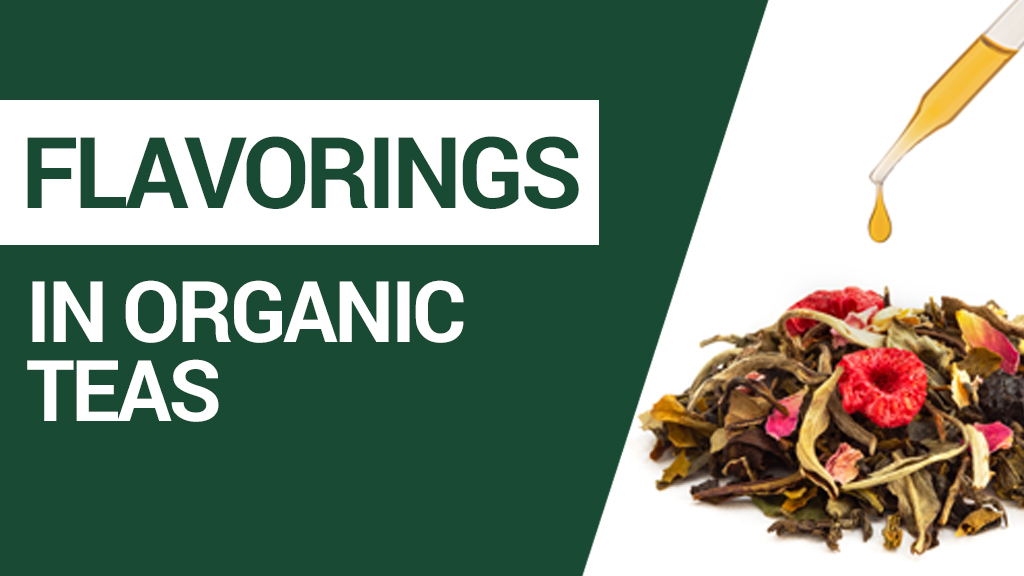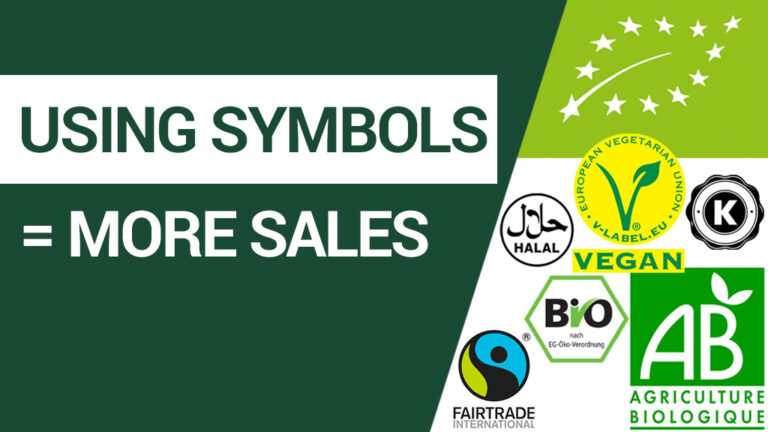You’ve surely rolled your eyes at some point while reading the labels on teas or herbal infusions.
Don’t worry, that’s normal.
Between “natural flavor”, “natural X flavoring”, “extract” or “essential oil”… In short, it’s a mess trying to figure out what’s allowed or not.
But you really have a vested interest in knowing the regulations, because:
- You’ll be sure you’re complying with the legal descriptions on your packaging,
- You’ll know what to say when customers inevitably ask whether your flavors are “artificial” or “natural”.
That’s what we’re going to cover here by reviewing the main flavorings and aromatic solutions allowed in organic teas and herbal infusions in Europe.
Table of contents
ToggleThe new organic rules since 2022
Since 2022, the rules have changed and become stricter.
With the new European organic regulation (EU 2018/848), which came into effect on January 1, 2022, everything related to flavoring has become more demanding.
You’re no longer allowed to use just any flavoring in an organic blend. And even if it’s “natural”, that’s no longer enough.
So, what is actually allowed?
To understand it properly, you need to distinguish between three major families:
- Natural X flavoring
- Natural flavoring
- Aromatic preparations: essential oils, extracts…
✔️ ALLOWED: Natural X flavoring
Let me start with an example:
If you read “natural lemon flavoring” on the ingredient list of an organic tea, it means that the flavoring has been extracted at least 95% from lemons.
And these lemons don’t have to be organic. In other words, the flavor itself doesn’t have to be organic to be used in an organic tea or herbal tea.
When we say “Natural X flavoring”, the X here refers to lemon. And the name in the ingredient list must be exactly “natural lemon flavoring”, word for word.
Now, for the more technical terms:
A Natural X flavoring is an aromatic substance, defined as such under regulation EC No. 1334/2008. It’s a mix of natural aromatic substances of which at least 95% come from the named source (the “X”), and a maximum of 5% from other natural sources.
In the industry, these are also called 95/5 flavors or FTNF (From The Named Fruit). For example, a natural raspberry flavor must consist of at least 95% elements extracted from raspberries.
In short: a natural lemon or raspberry flavor can be used to give lemon or raspberry taste to an organic tea or herbal tea. But the flavor doesn’t have to be organic… subtle, right? 😉
You might say “well, that makes sense”. Well actually, not really — and that’s what we’ll see with the next type of flavoring, which is no longer allowed.
❌ FORBIDDEN: Natural flavoring (without “X”)
Here’s an example using vanilla.
When you read “natural flavoring” and not “natural vanilla flavoring”, it means that the flavoring:
- contains natural aromatic substances,
- but not derived from vanilla.
Many people think natural vanilla flavor always comes from the vanilla pod… but it often comes from certain types of wood bark, rich in aromatic compounds similar to those of vanilla.
And that’s perfectly legal… outside of organic products.
And this is where the legislation got stricter in 2022. Before, you could create and blend teas and herbal infusions with natural flavors that weren’t from “X”.
Since 2022, that’s over. The vanilla taste in organic products must now come 95% from the vanilla plant. Hence why “natural flavoring” (without “X”) is no longer allowed in organic teas.
We now clearly see the difference between a “natural flavor” and a “natural X flavoring”. The second must come from the fruit or plant it is named after. While the first can come from another natural source (tree bark, etc.).
✔️ ALLOWED: Aromatic preparations such as extracts and essential oils
Aromatic preparations such as extracts and essential oils are still allowed in organic products, provided they are natural and derived from the plant or fruit they are named after.
Let’s take the example of our Organic Mojithé Green Tea.
Here’s the ingredient list:
Green Tea China Sencha*, lemongrass*, lemon peels*, Lime Oil*, spearmint*, marigold*, natural lemon flavouring, natural peppermint flavouring, vanilla extract*. * Certified organic
We’re using here an organic essential oil extracted from the fruit itself.
Do they have to be organic?
Generally, yes.
These extracts or essential oils must be organic as long as they are available in organic form on the market in sufficient quantities.
Summary table of flavorings in organic teas & infusions
To make it simple:
| Type of flavoring or preparation | Allowed in organic? | Conditions |
|---|---|---|
| Natural X flavoring | Yes | Must contain at least 95% substances from X |
| Natural flavoring (without “X”) | No | Forbidden because it doesn’t guarantee origin from the stated plant/fruit |
| Essential oil (of X) | Yes | Must come from the plant or fruit; organic if available |
| Extract (of X) | Yes | Same: must be natural and organic if possible |
By mastering these distinctions, you gain clarity in your formulations, compliance with regulations, and transparency.
You’re now ready to create your labels, source the right products, and answer your clients’ questions.




